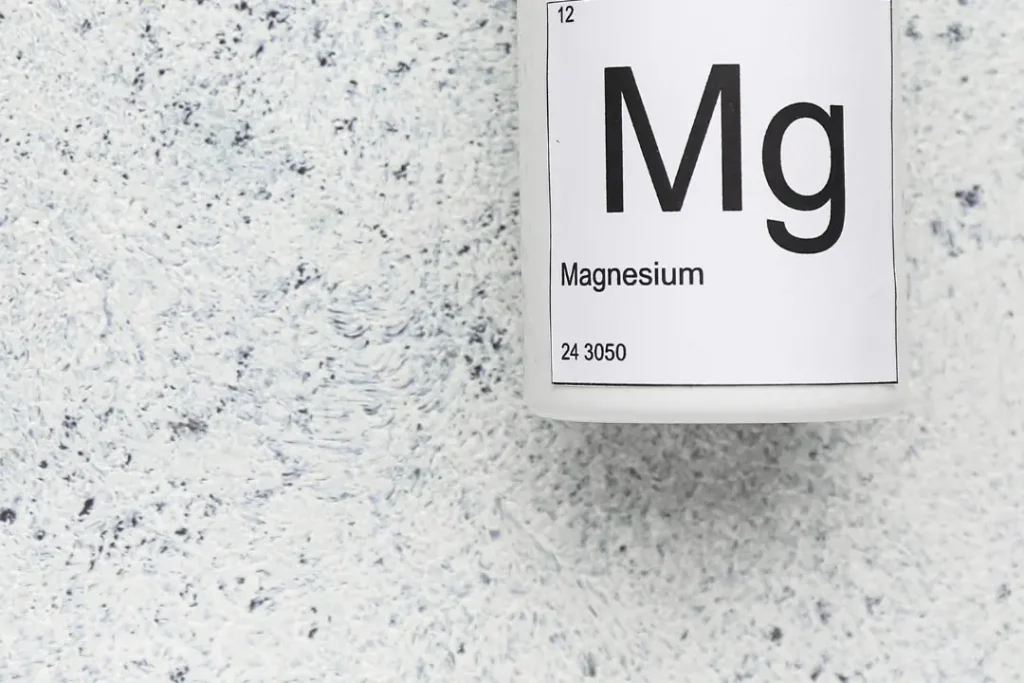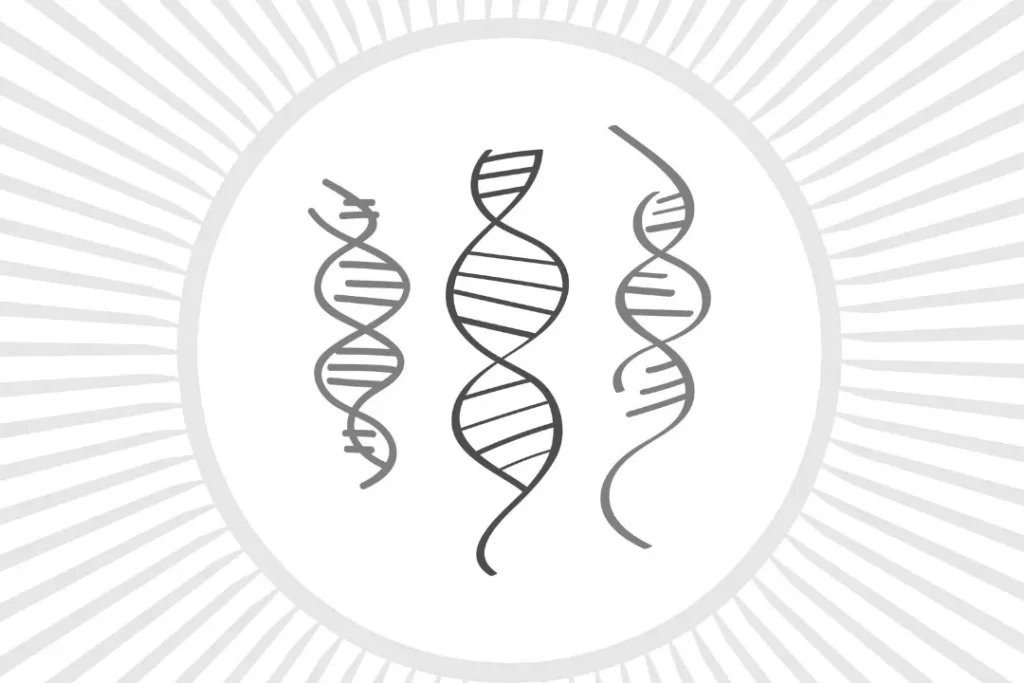Dolomite, a typical rock-forming mineral, is significant in the world of dietary supplements. Dolomite was named after the French geologist Déodat de Dolomieu and the possible health benefits of this mineral are directly related to its chemical makeup and the physiological effects of its constituent constituents. However, it is crucial to approach the usage of dolomite supplements with knowledge of both their advantages and potential concerns, as well as the best doses and adverse effects.
You May Also Like:
Vitamin B6: Benefits, Dosage, Side Effects, Drug Interactions, And Other Important Information
Dolomite: Benefits, Dosage, Side Effects, Drug Interactions, and Other Important Information is an original (NootropicsPlanet) article.
Nature of Dolomite
Dolomite is a naturally occurring mineral that is a calcium and magnesium double carbonate. The molecular symbol for it is CaMg(CO3)2. Interesting structural similarities exist between dolomite and the mineral calcite (CaCO3). Its repeating arrangement of calcium and magnesium ions wedged between layers of carbonate ions is what gives its crystal structure its distinctive appearance. Dolomite’s distinguishing properties, such as its hardness and rhombohedral crystal structure, are due to this alternation of ions.
In nature, dolomite may be found in a variety of shapes, from vast layers of dolomitic limestone to metamorphic rocks that resemble marble. Dolomite is white when it is pure, but impurities can give it a range of hues, including pink, brown, and gray.
Calcium and magnesium are the two main minerals that are essential for a variety of biological functions of dolomite. For instance, calcium is essential for healthy bones, neuron function, muscular contraction, and blood clotting. The body needs magnesium for approximately 300 enzymatic processes, including protein synthesis, neuron and muscle function, and blood pressure control.
However, a variety of variables, from the physical and chemical form of the dolomite supplement to certain physiological traits, might affect the body’s capacity to absorb and utilize these minerals from dolomite. Dolomite offers a natural supply of these necessary elements, but its safety and efficacy use as a dietary supplement depends on an awareness of the intricacies of its bioavailability and metabolism.

Health Benefits of Dolomite
Dolomite supplements can benefit those who are magnesium or calcium deficient. For instance, the calcium in dolomite supplements may be beneficial for post-menopausal women and elderly people at risk of osteoporosis. Similarly, those with specific illnesses that raise the risk of magnesium insufficiency, such as type 2 diabetes, alcoholism, or gastrointestinal issues, may benefit from taking dolomite supplements.


Chemical Nature of Dolomite
Calcium magnesium carbonate (CaMg(CO3)2) makes up the carbonate mineral known as dolomite. Similar to calcite, dolomite has a layered arrangement of calcium and magnesium ions inside its crystal structure. Each metal ion is surrounded by six carbonate ions in an octahedral form because of the alternate layers of calcium and magnesium. The unique rhombohedral crystal habit, hardness, and specific gravity of dolomite are all influenced by this structure.


Physiological Implications of Dolomite
Dolomite has effects on human health since it contains calcium and magnesium. Numerous physiological functions, including bone formation, nerve conduction, muscular contraction, and blood clotting, depend on calcium. As mentioned, magnesium is an essential component of over 300 enzyme systems that govern functions such as protein synthesis, muscle and neuron function, blood sugar management, and blood pressure regulation. Additionally, dolomite also helps in the production of DNA, RNA, and the antioxidant glutathione as well as the structural growth of bones.
Thus, the health benefits of dolomite are dependent on its ability to supply these two crucial minerals. However, the effects of these minerals after they are ingested and the capacity of the human body to absorb calcium and magnesium from dolomite might differ depending on various circumstances, including the presence of other dietary components and individual physiological characteristics.


Optimal Dosage of Dolomite
The best amount of dolomite to take varies on your age, health, and dietary requirements. Adults require around 1000-1300 mg of calcium and 310-420 mg of magnesium per day as a general rule. However, only a small portion of these quantities would come from dolomite supplements; instead, the majority of these vital minerals should come from dietary sources.
Side Effects of Dolomite
While dolomite can help with calcium and magnesium intake, there are some possible negative effects. Hypercalcemia is one of the possible side effects with symptoms including nausea, vomiting, and muscular weakness. Kidney stones or renal failure can also be brought on by consuming too much calcium from dolomite. A high magnesium intake may cause cramps, nausea, diarrhea, and, in rare instances, an abnormal heartbeat or cardiac arrest.
Potential Substance Interactions with Dolomite
Dolomite may influence a drug’s absorption, causing an interaction. For instance, magnesium can interact with some medicines, such as diuretics, heart medications, and antibiotics, while calcium can decrease the absorption of antibiotics of the tetracycline family. Before beginning dolomite supplements, those who are on these drugs should speak with a healthcare professional.
Best Responsible Use of Dolomite
Due to its dual calcium and magnesium content, dolomite may provide numerous health advantages, especially for people who are deficient in these vital minerals. However, vigilance is required due to the potential for negative effects and interactions with other drugs. In order to guarantee the proper use of dolomite as a nutritional supplement, it is imperative to follow suggested dose requirements and speak with a healthcare professional. We can better use the potential of dolomite if we have a balanced grasp of its advantages and disadvantages as the study into the intricacies of its health consequences progresses.
Dolomite:
Conclusion
Derived from natural sources, dolomite is rich in essential minerals like calcium and magnesium and hence would be a really great option for a supplement if you are magnesium or calcium deficient. These minerals play crucial roles in maintaining strong bones and teeth and promoting overall well-being.
Additionally, dolomite is also believed to prevent specific illnesses that are linked with magnesium insufficiency. While dolomite may offer potential health advantages, it is important to note that you still need professional advice from your doctors to suit your individual needs. Aside from that, obtaining a good quality source of dolomite from reputable sellers is equally as important as seeking healthcare advice.
References:
- Dolomite: Health Benefits, Side Effects, Uses, Dose, and Warning. Retrieved from: https://www.rxlist.com/dolomite/supplements.htm
- Dolomite Tablet: Uses, Side Effects, and More. Retrieved from: https://www.webmd.com/drugs/2/drug-3361/dolomite-oral/details#:~:text=It%20may%20be%20used%20to,muscle%20disease%20(latent%20tetany).
- Dolomite Supplementation Improves Bone Metabolism through Modulation of Calcium-Regulating Hormone Secretion in Ovariectomized Rats. Retrieved from: https://pubmed.ncbi.nlm.nih.gov/15750692/
Important Note: The information contained in this article is for general informational purposes only, and should not be construed as health or medical advice, nor is it intended to diagnose, prevent, treat, or cure any disease or health condition. Before embarking on any diet, fitness regimen, or program of nutritional supplementation, it is advisable to consult your healthcare professional in order to determine its safety and probable efficacy in terms of your individual state of health.
Regarding Nutritional Supplements Or Other Non-Prescription Health Products: If any nutritional supplements or other non-prescription health products are mentioned in the foregoing article, any claims or statements made about them have not been evaluated by the U.S. Food and Drug Administration, and such nutritional supplements or other health products are not intended to diagnose, treat, cure, or prevent any disease.
